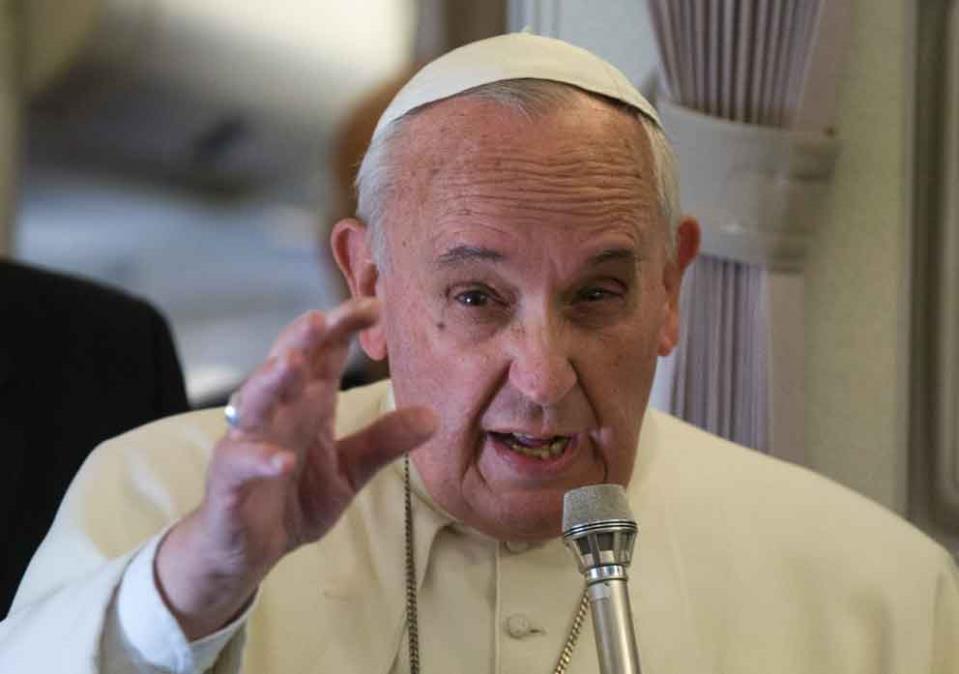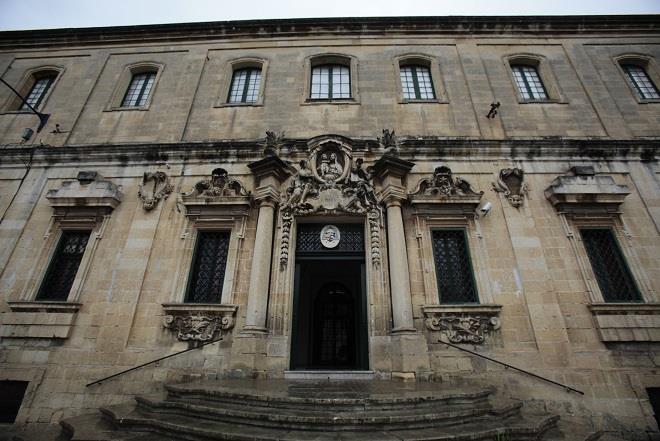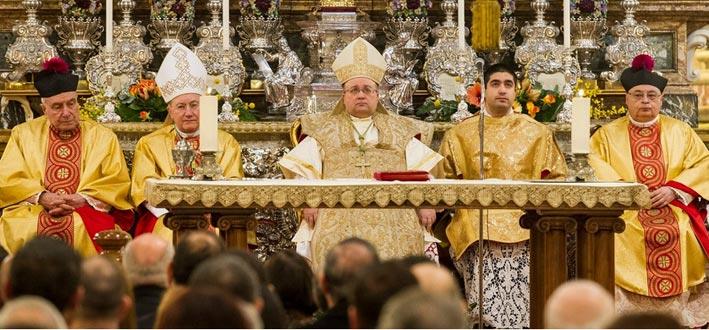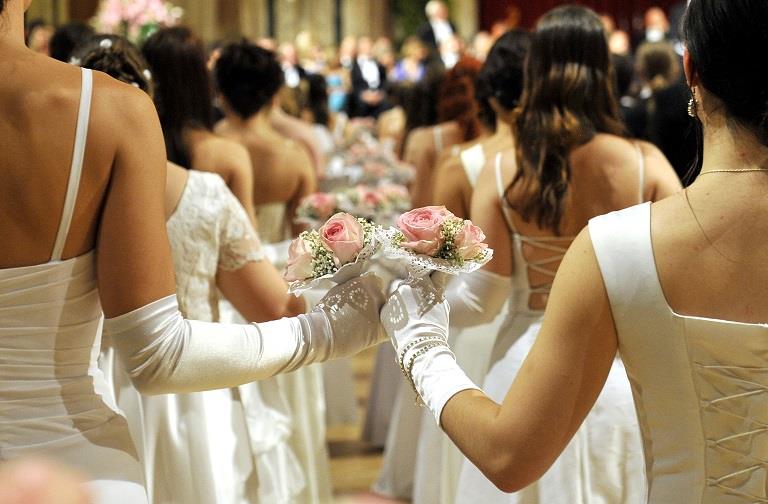Archbishop-elect Charles Scicluna is set on tackling the Church’s dire financial situation but any cost cutting will not affect id-Dar tal-Providenza or Caritas, he says.
Mgr Scicluna said on Friday that the Church registers a deficit of around €400,000 to €500,000 every year and one of his immediate aims is to address the situation. In an interview with The Malta Independent on Sunday, Mgr Scicluna said the deficit situation will be addressed.
He dismissed claims that the Curia can make up for this shortfall in finances by selling its “long list” of assets. “Following the 1993 agreement, all Church property that was not being used for pastoral purposes was acquired by the state in exchange for bonds. Up until 15 years ago, these bonds paid an interest rate of seven per cent, but that has since gone down to two per cent. While in some cases the value of the properties rose, what we got in exchange went down. The sums do not add up anymore.”
Mgr Scicluna said this will inevitably lead to economisation but some sectors will not be touched. “I will certainly not economise with id-Dar tal-Providenza, or with the rehabilitation of drug addicts.”
The Archbishop-elect said he appreciated the fact that the state helps the Church maintain these services. “I understand that we have to avoid unnecessary spending where we can. I want to be responsible with our finances because this is not my money; it is the people’s money. My job is to manage them. If we have a cow we should drink the milk, not eat the meat because then we would end up with nothing.”

Finding the right formula
Soon after Pope Francis’ nomination was made official on Friday, Mgr Scicluna spoke about the need to reform the Curia. The Archbishop-elect said he is considering the report prepared by a special commission appointed a few years back by the Presbyterian Council.
“It is on my mind and we have discussed that report several times. Now we need to find a way to implement it. I am not saying that I am metaphorically bound in a straitjacket, because there are also other reports proposing a reform of the Curia administration. I would like to combine elements from all the existing reports. The structure of the team I will be appointing to help me lead the Church will also depend on the structure we opt for. We are at the beginning of a new episcopacy and I feel that this is an opportunity to restructure my team to match up with the with the proposals of these reforms.” Mgr Scicluna said he will be holding several meetings in the coming weeks where he will not only be listening to different categories of people but also to those who have worked on these proposals.

The aftermath of the Church’s ‘leadership crisis’
The new Archbishop said he will work hard to rope back in priests who have recently expressed disagreement with the Church administration. Several priests had expressed their disappointment and disagreement with the leadership style adopted by his predecessor, Mgr Paul Cremona. “There is nothing better than personal contact and dialogue. I feel very comfortable meeting people in person. Experience has taught me that we can hurt one another when we communicate through newspapers. When you meet people face to face things are still said but the tone and the results are different. My day, like everyone else’s, is 24 hours long and there are limits, but I will give priority to my meetings with the clergy.”
Rebuilding bridges
In the past few months, there were a number of priests who not only criticised Mgr Paul Cremona’s “weak” leadership but also criticised Mgr Scicluna directly. “My personal style is to meet with these priests. We might not necessarily agree on everything, but at least there would be that essential human contact.” Mgr Scicluna said the friction he experienced with a number of priests has weighed heavily on his mind, especially in the past few days. “I was thinking about this last night. I often wake up and pray during the night and thoughts start running through my head. The first thought that came to mind last night was that there are some priests whom I need to visit and speak to. I will not be phoning them. I will make sure that I visit them.”

Herding the flock
He also wishes to remain close to the people. In fact, he believes that this is one way in which he can attract people back to the Church. “For a number of years, I made sure that I dedicated at least half a day to meeting people. People will always prefer speaking directly to the Bishop rather than someone else from his office. Personally, I believe in the need to meet people face to face because that can give you a better insight of society. One can always celebrate Mass or a baptism or a feast but that would limit you to the ritual aspect. On the other hand, when you meet someone, listen to their story, when you see a tear streaming down someone’s cheek as they speak to you about their problems – there is no substitute for that.”
Mgr Scicluna also feels that meeting people in their own environment gives better results. “You can either have someone visit you at the Curia, leaving them to wait for half-an- hour in a cold waiting room, or you can go and meet people yourself.”
He also wishes to retain the practice of celebrating Mass at various localities – something he has been doing for a number of years. “It does not have to be a festa or a special occasion. I would like to keep doing this.”

Cana course should not be the only option
Mgr Scicluna also reiterated that the Cana Course should not be the only form of marriage preparation offered to couples. There should be other alternatives. The Archbishop-elect had first spoken on the subject during a TV interview some weeks ago.
Asked to elaborate on the subject, Mgr Scicluna said he has witnessed different realities over the years. “The Cana Course was recently revised and now includes new schedules. What I said is that the Cana Course is not the only thing we should offer. The important thing is that couples wishing to marry receive the necessary preparation. I am willing to consider other alternatives apart from the Cana Course. This means that one has to be prepared for marriage but essentially all in the same way.”